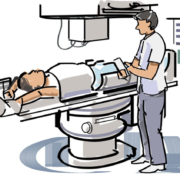PSA: Sharing the Decision
PSA screening is controversial because it may or may not indicate prostate cancer without additional testing and it may or may not indicate mortality from prostate cancer. As I said, many elderly men will die with prostate cancer but not of it. How do you know what to do? A recent study may provide some guidance.
Regular PSA Testing and Mortality
The Veterans Administration can be a challenging bureaucracy, but it’s one entity that can provide medical information on millions of subjects. Researchers wanted the answer to a simple question: Do higher rates of PSA testing yield a reduction in metastatic cases of prostate cancer?
The survey population included male patients getting a PSA test at 128 U.S. Veterans Health Administration facilities across the system from 2005 to 2019. The reason those years were chosen is that the U.S. Preventive Services Task Force (USPTF) had modified guidelines for PSA screening to recommend less frequent use of the test for men over 70. Over those years, there was a decrease in annual testing by 10% to 15% in non-VA healthcare facilities, and that was matched in the VA system. The USPTF recommended against screening all men, and PSA testing again fell in all age groups.
The data showed that as PSA testing decreased, the rates of metastatic prostate cancer increased. Drilling down into the data, those VHA facilities with higher rates of PSA screening had lower rates of metastatic prostate cancer.
Shared Decision-Making
The researchers were diplomatic in their conclusions. They simply presented the findings and suggested that the physician and patient should jointly decide on the course of action. Should we test? When do we proceed with a biopsy? What do we do if it’s benign? If it’s malignant? And a whole bunch more.
The Bottom Line
The researchers easily could have recommended that everyone gets tested and everyone gets a biopsy if the PSA is too high, but PSA testing is not precise enough. Some men have prostate cancer with PSA less than 4.0 and some do not have it with PSA over 10. The best course is having a discussion with your urologist and coming to a joint decision that satisfies you both. It’s also not a bad idea to get a second opinion, of whether you agree with the plan or not.
One thing for sure: always do the screening test again, regardless of whether it’s PSA, cholesterol, or HbA1c. For the most part, tests are accurate and reliable, but there’s always the possibility of a mistake; one test does not a diagnosis make. Retest, discuss, and plan a course of action with your healthcare professional.
What are you prepared to do today?
Dr. Chet
Reference: JAMA Oncol. doi:10.1001/jamaoncol.2022.4319









